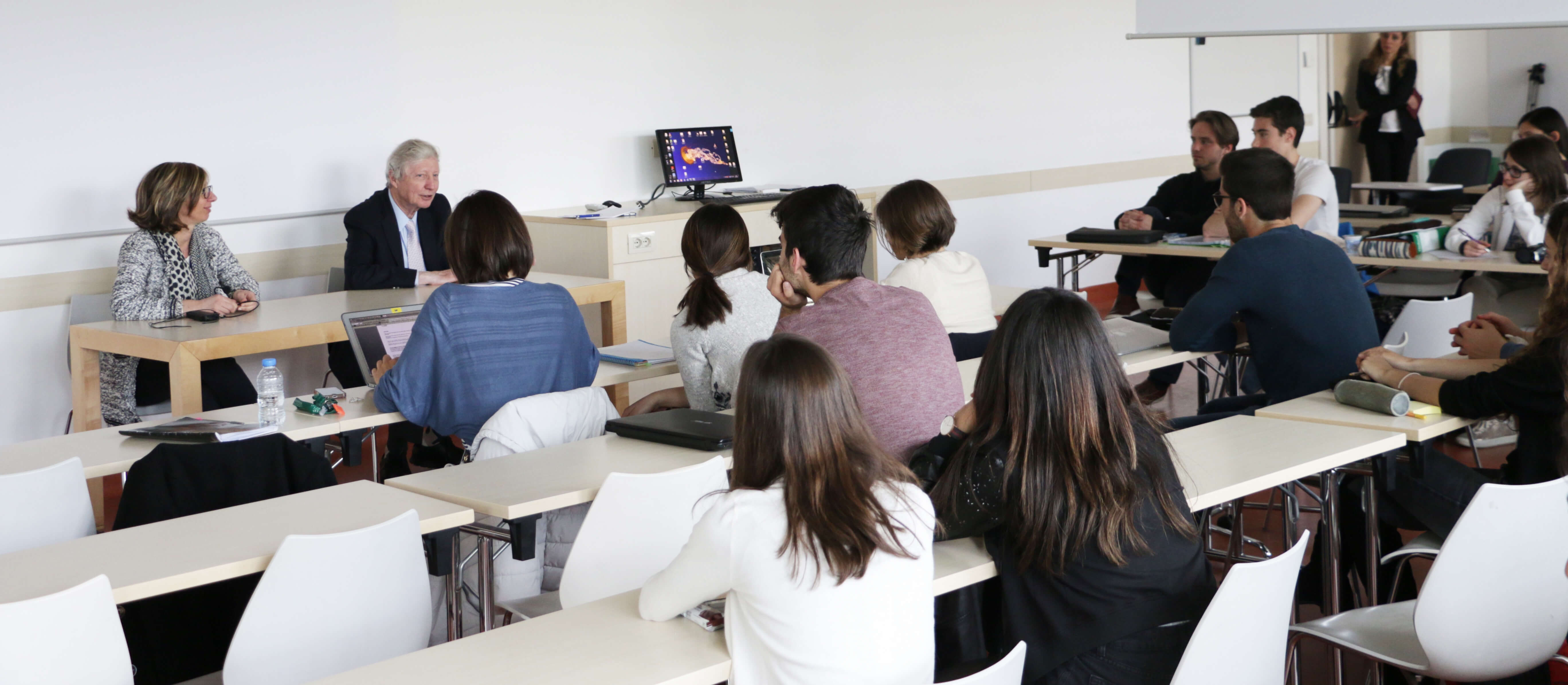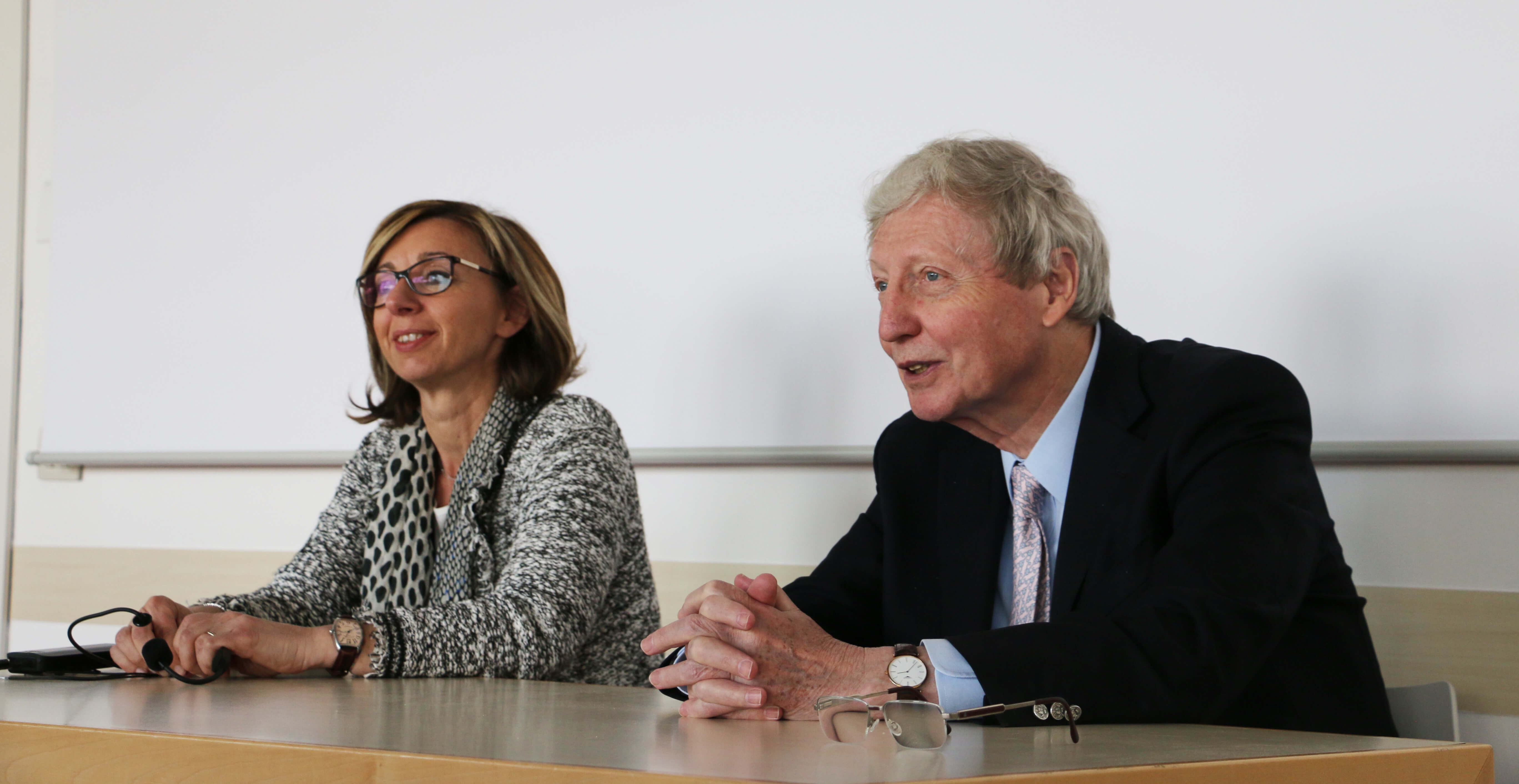Nobel Laureate Jules Hoffmann Meets Hunimed Students
On the 19th of April 2017, Humanitas University had the privilege of hosting Professor Jules Hoffmann from the University of Strasbourg who earned the 2011 Nobel Prize in Medicine. He presented a lecture titled “Innate Immunity: from insects to humans.”

Along with his lecture that was attended by researchers, students and faculty, he met with a group of lucky medical and Ph.D. students and answered their numerous questions about immunity and biomedical research. They addressed him first hand about their passions and curiosities and received sound advice from the professor:
How do you keep yourself going, and not fall into frustration, when you don’t immediately see your research work translated into something?
I think that there is a relatively simple answer to that. Why do you go into this type of work? First of all, curiosity, mostly. Every month or at least every year something new comes out and if you are content with that type of satisfaction, you live a good life. You are happy, sort of happy with that; then you have other things, other satisfactions in your life.
Take it easy. Just take pleasure in what you do, interest and pleasure in the questions that you ask. And then you will be fine.
Don’t try to overshoot in the beginning, and not in the end either.
Research is interesting and satisfying all the time. You will work for weeks and weeks and as soon as you get a small good result you will be happy and celebrate it. You have to take research and science as something that provides some sort of daily pleasure, or weekly pleasure.
See the pleasure in the work you are doing and disregard a lot of things like careers and prizes and so on.

Have you ever thought that your work would be so relevant (to students and the scientific community)?
No. Frankly, no. And I have had to often justify it also for funding. I started a simple question about insects, no one understood why, and no one was excited by it but I really wanted to know, and then I went step by step. There were weak moments. I hoped that we would find interesting things and in the end it happened.
What message would you leave to all medical students?
Always keep your confidence in the power of science, regardless of skepticism that occasionally spreads among people. It recently happened with vaccines: what is important to remember is that they have saved 1.5 billion lives.
About Prof. Hoffmann
Jules Hoffmann is Professor at the University of Strasbourg and Senior Researcher at CNRS. He dedicated his work to the study of the genetic and molecular mechanisms responsible for innate immunity in insects, providing new insights into the defense mechanisms that organisms, from the most primitive up to humans, employ against infectious agents and eventually leading to a re-evaluation of the role of innate immunity in mammals. The Drosophila model has also enabled to make considerable progress in the study of certain human pathologies and in the understanding of memory, behavior, sleep and nutrition phenomena.
In 2011, along with Bruce A. Beutler and Ralph M. Steinman, Hoffmann was awarded the Nobel Prize for Medicine.
Hoffmann set up and headed the CNRS laboratory “Endocrinology and Immunology of Insects” within the CNRS Institut de Biologie Moléculaire et Cellulaire in Strasbourg. President of the French Académie des Sciences in 2007 and 2008, he is a member of the Academy of Sciences of the United States of America, Germany and Russia. Among the numerous prestigious prizes received: the Rosenstiel Award, the Keio Medical Science Prize, the 2011 Gairdner Award for medical research and the 2011 Shaw Prize in Life Science and Medicine. He also received the CNRS Gold Medal. Hoffmann is Officier de la Légion d’Honneur in France and is an Immortel at the Académie Française (2012).


